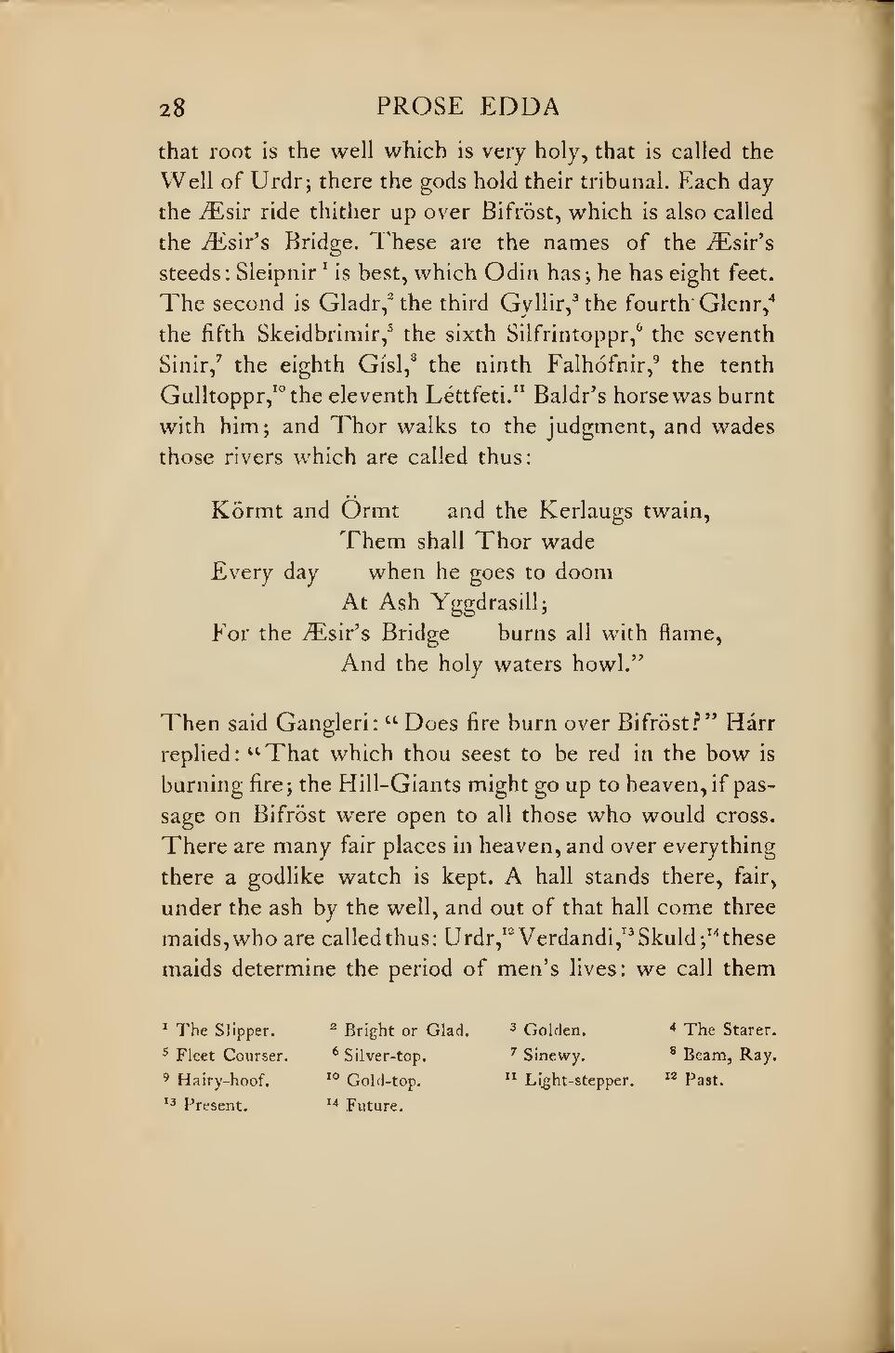that root is the well which is very holy, that is called the Well of Urdr; there the gods hold their tribunal. Each day the Æsir ride thither up over Bifröst, which is also called the Æsir's Bridge. These are the names of the Æsir's steeds: Sleipnir[1] is best, which Odin has; he has eight feet. The second is Gladr,[2] the third Gyllir,[3] the fourth Glenr,[4] the fifth Skeidbrimir,[5] the sixth Silfrintoppr,[6] the seventh Sinir,[7] the eighth Gísl,[8] the ninth Falhófnir,[9] the tenth Gulltoppr,[10] the eleventh Léttfeti.[11] Baldr's horse was burnt with him; and Thor walks to the judgment, and wades those rivers which are called thus:
- Körmt and Örmt
- and the Kerlaugs twain,
- Them shall Thor wade
- Every day
- when he goes to doom
- At Ash Yggdrasill;
- For the Æsir's Bridge
- burns all with flame,
- And the holy waters howl."
Then said Gangleri: "Does fire burn over Bifröst?" Hárr replied: "That which thou seest to be red in the bow is burning fire; the Hill-Giants might go up to heaven, if passage on Bifröst were open to all those who would cross. There are many fair places in heaven, and over everything there a godlike watch is kept. A hall stands there, fair, under the ash by the well, and out of that hall come three maids, who are called thus: Urdr,[12] Verdandi,[13] Skuld;[14] these maids determine the period of men's lives: we call them
